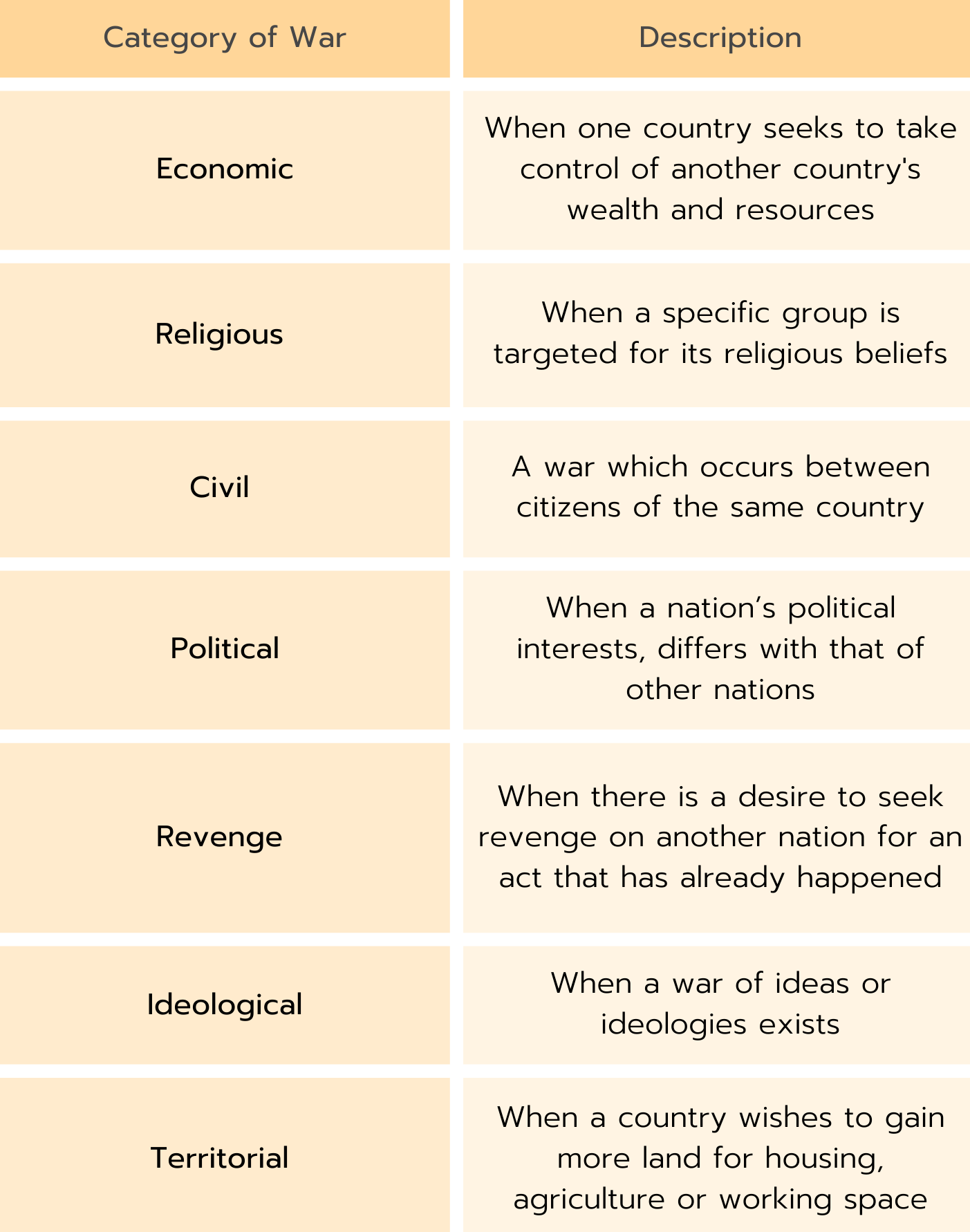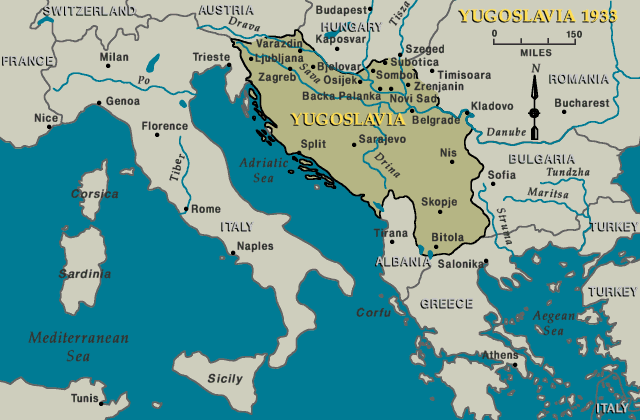Why Do You Think Wars Happen?
History has witnessed many wars, in which countries have had to endure great hardships and suffer immensely. War is typically fought by a country or group of countries against an opposing force to seek an objective. Wars are fought for a variety of reasons including economic, territorial, religious, political, civil, revenge and ideological.
Visual created using responses to our question of the month: ‘how do you define war?’
The Breakup of Yugoslavia and the Yugoslav Wars
The kingdom of Yugoslavia was formed by Prince Alexander Karađorđević of Serbia in December 1918. Nikola Pašić of the People’s Radical Party (PRP) served as the acting prime minister of Yugoslavia between 1924-1926.The people of Yugoslavia shared the same language but they had distinct religious, cultural and ethnic differences. Socialist Yugoslavia was formed in 1946 after Josip Tito and his Communist led Partisans helped to liberate the country from German rule. After Tito’s death in 1980 it was divided into six republics. In 1991, Croatia and Slovenia announced complete independence from Yugoslavia. Conflict then emerged since Serbia wanted to create their own country. In 1992, Macedonia formed its own state and Bosnia and Herzegovina followed soon after. However, Bosnia and Serbia disagreed about how Yugoslavia was divided and this led to serious conflict. Serbia and Montenegro remained one country until 2006. Kosovo was declared an independent state from Serbia in 2008 but it is not recognised by some states internationally.
Dedijer, Vladimir, et al. 1974. History of Yugoslavia. New York, NY: McGraw-Hill Book Company.
Causes of the breakup of Yugoslavia
The end of the Cold War
Yugoslavia was a communist dictatorship, but it was not closely joined with the USSR. Since it was also communist, the fall of the USSR (1988-1991) affected Yugoslavia and its citizens demanded democracy and capitalism.
Economic problems
During the oil crisis of the 1970s, Yugoslavia’s economy shrank and unemployment soared. This made people lose trust in the movement and encouraged them to support nationalist parties. There were economic inequalities across Yugoslavia, with the wealthiest areas in the north developing far quicker than the poorest areas in the south.
Ethnic groups and the rise of nationalism
The two largest groups, Serbs and Croats, had never lived in the same country before 1918.
Religious divisions were strong, as Serbians and Macedonians were mostly Christian Orthodox, whereas Croats and Slovenes were Catholic, and Bosniaks and Albanians were Muslim.
Politicians, such as Slobodan Milosevic, encouraged independence by accusing Kosovo (which was majority Albanian) of persecuting ethnic Serbs.
In 1990, free elections were held in most republics, with citizens electing nationalist governments in Slovenia, Croatia and Macedonia.
Independence Movements
The new governments disagreed with Serbia over the constitution. Serbia rejected proposals to make the countries fully independent, so the republics declared independence in 1991 and 1992.
There was a Croat and Slovene rejection of the Serbian dominance over the control of Yugoslavia.
This led to the Croatian War for Independence and the Bosnian War. The first phase of the Croatian War lasted until January 1992 and ended with Western Slavonia and Krajina breaking away. In 1995, Croatia retook these territories.
The wars led to 22,000 casualties.
A Bosnian special forces soldier returns fire downtown Sarajevo, April 6, 1992
Nigerian troops enter Port Harcourt after taking it from Biafrian forces in 1968. Evening Standard/Hulton Archive/Getty Images
Nigerian Civil War
The Nigerian Civil War took place between July 1967 - January 1970. It started when the country’s south-eastern regions declared independence as the Republic of Biafra. Nigeria was colonised by Britain in the mid-19th century. It was divided between a Muslim-majority north and a Christian-majority south.Following its independence in 1960, three regions were formed according to tribe, the Hausa and Fulani in the northern region, the Yoruba in the south-west, and the Igbo in the south-east. In 1966 there was a military coup and the Igbo General Aguiyi-Ironsi became President. However, he was killed shortly afterwards in a counter-coup. On May 30 1967, the Igbo-dominant province declared its independence as the Republic of Biafra, as they were afraid of the other tribes seeking revenge. Nigeria prevented food and essential resources from entering Biafra, which caused a humanitarian crisis and Biafra’s surrender on January 13 1970.
Causes of the conflict
The British did not take religious, ethnic and linguistic differences into consideration when drawing up Nigeria’s borders.
When Nigeria won independence in 1960, there were nearly 300 ethnic and cultural groups, and differences between them contributed to disputes.
The immediate causes of the war included ethno-religious violence and attacks on Igbos in northern Nigeria, the military coup, counter-coup and persecution of Igbo, and each side’s desire to control oil production in the Niger Delta.
The federal government in Lagos operated as a brutal miliary dictatorship. The northern and western regions were swept by a pogrom which resulted in thousands of Igbo civilian deaths.











